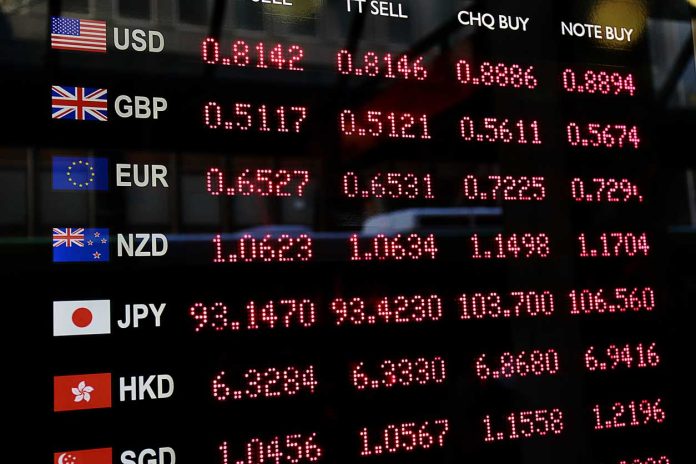Interest rates are at the forefront of many investors’ minds this year, as inflation takes hold in many countries around the world. But have you ever thought about the effect this has on currency? Read on as we answer the big question – how do interest rates affect exchange rates?
Exchange rates: a summary
You might be aware of the exchange rate – whether you’ve needed to convert money when going to another country, you’ve been keeping track of it and how it compares with the economy, or you may be interested in Forex trading. Generally speaking, it is the rate at which a country’s currency will be exchanged for another. There are a few issues that can cause the rate at which currency is exchanged to fall or rise, which we will look at in more detail below – as well as the impact that interest rates have, and other socioeconomic factors.
The impact of interest
So, let’s start with interest rates – how do they affect the exchange rate of a currency? Interest rates are one of the main factors that determine the value of a currency. When interest rates rise, like we have seen in many countries this year, the value of a currency rises too. This is because higher interest rates mean higher returns for those that choose to invest in the exchange market. When the demand for a currency increases, so does the overall value. If the interest rates are lower, the value of the currency decreases as investors will not be able to make higher returns at this point. But unfortunately, it is only this simple when other factors are removed – in an ideal world! Here are a few examples of other factors that have an impact on exchange rates.
Inflation
Interest goes hand in hand with inflation, as it is introduced to keep demand under control, and inflation can also have an impact on exchange rates. Whilst higher interest rates create higher returns and improve the value of the currency, an increase in inflation will cause a decrease. As prices rise in various countries that are suffering from inflation, exports, and demand from overseas will deplete as countries cannot afford to spend at such high prices. This means that the currency will fall in demand, and value as a result.
Economic stability
The general economic stability of a country has an impact on its currency. Just because a country has low-interest rates, that does not necessarily mean that its currency is a bad investment – the Euro is a good example of this. Below, we’ll look at some of the most important factors that determine a country’s stability and how it affects interest rates.
Debt
If a country is in debt, and borrowing money to help its economy grow, this can lead to inflation. As we mentioned above, an increase in inflation can result in a currency becoming less valuable. This means that investment will decrease and will create a weaker exchange rate.
Speculation
Although the exchange market tends to be volatile and is consistently difficult to predict, there are still some that speculate on what is going to happen to certain currencies in the short term. As you would expect, if this speculation says that the value is set to fall, investors will sell, and as a result, the exchange rate and value will fall. If the speculation is that the currency is going to increase in price, investors will buy into the currency and cause a rise in exchange rates.
Political issues
Much like economic stability, political stability plays a part when it comes to the exchange rates of a country. The more stable the country is when it comes to its government, the less likely it is to fall victim to things like economic failure, or disputes with other countries. The most stable a country looks in political terms, the more likely investors are to take a chance on its currency, as it could be seen as more of a ‘safe bet’ than those that are going through a rocky political time – increasing the value of the currency.



































